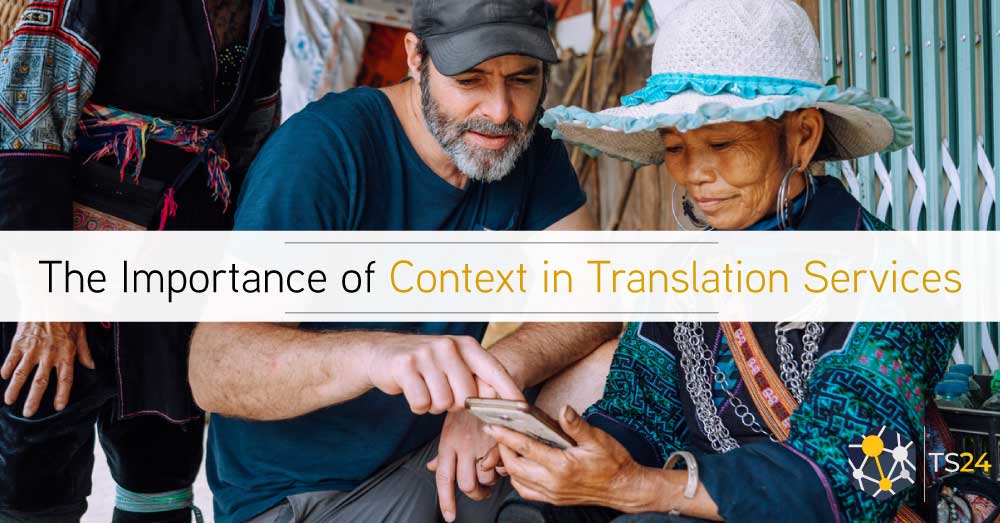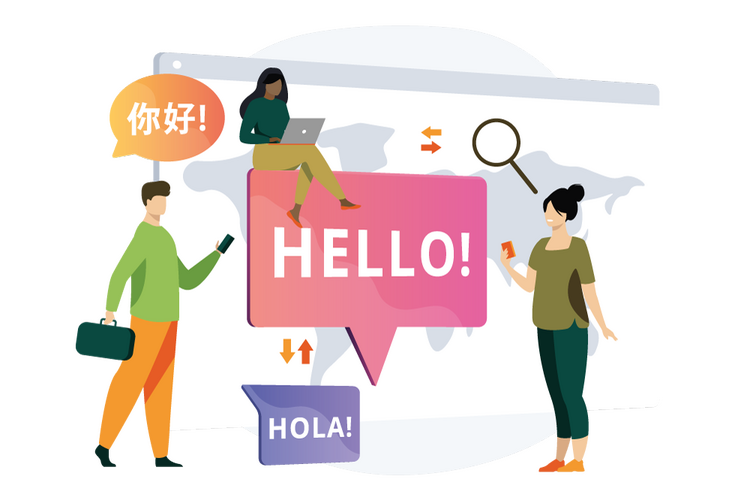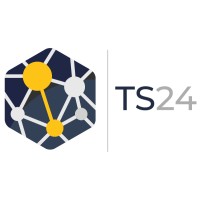Why is Context Vital in Professional Translation Services?
Communicating meanings across languages is more than a literal translation of words. A professional translation agency or an experienced linguist can pick the subtleties of both languages (the original and the translation language) and provide a clear, understandable document that is linguistically and culturally suitable for the target audience.
For instance, the best English-to-French translation service provider will retain the accuracy of the English language while breathing life into the words of the translated French version. Here’s when the context comes into play.
Besides technical skills, the translator you choose must analyse the original text’s intended meaning to create an accurate, finished document.
Why Does the Context Matter?
Translating text extends beyond the meaning of words. Generally, a translation aims to give a specific purpose to individual words. However, they won’t mean much if they can’t make sense when read together.
This explains why context is vital to highlight the meaning of a word, sentence, paragraph, or phrase. It tells where and when the action happened, who performed it, and how.
Understanding the larger context helps determine the writer’s intent.
For instance, the French idiom “pleuvoir des cordes” literally translates into “raining ropes” in English. However, it won’t make much sense to native English speakers.
Likewise, French speakers would be equally baffled if they stumbled across the literal translation of the English counterpart, “raining cats and dogs,” of the exact phrase.
If you pick a free translation tool or app to translate the French idiom into English, you’ll see “raining cats and dogs” as a translation. Hence, it isn’t a reliable English to French translation service, primarily if you’re concerned about your business reputation.
Because certified translators have an in-depth understanding of a language’s context, they tease out meanings in writing, where free automated tools often fail.
Types of Contexts in Translation Services
Two primary factors affect the text’s meaning when seeking context.
Situational Context
It refers to the circumstances that affect the text’s meaning. These may include gestures and facial expressions. At a micro level, situational context may refer to political, social, economic, and cultural backgrounds.
The value system differs from one culture to another. In other words, the sense of right and wrong also varies from society to society. Likewise, ideologies also affect the context.
Linguistic Context
Linguistic context refers to the linguistic factors affecting a text’s meaning. For instance, a word in a text isn’t found in isolation but instead connects to other words and text at large. This connection determines the meaning of the word rather than its individual meaning.
Linguistic context is further divided into immediate and remote. The former implies the sentences and phrases that make the context of the entire text apparent right away.
Conversely, words and phrases that exist elsewhere are referred to as remote contexts. It may point toward the setting or background where the text was created, and the author may have special reasons to use it.
Regional Variations in the French Language
French is the official language of 29 countries and has up to 300 million speakers globally. However, the language version varies by region.
For instance, the French version spoken in the native country differs from that spoken in Belgium, Canada, Madagascar, and Switzerland.
This variation exists due to cultural differences between the French-speaking countries. As a result, we see apparent modifications in regional dialects.
The language keeps evolving, leading to slight variations in how individuals speak a particular language worldwide. This change is best seen in the United Kingdom’s regional diversity in the English language.
Although the linguistic origin is the same, a few phrases and words spoken by London residents differ from those spoken by people in Wales, Northern Island, and Scotland.
Therefore, identifying the audience’s location is crucial to get the most accurate French translation. Once the translator knows the dialect spoken in a specific area, they provide the best text translation.
Also called localisation, this process requires a deeper understanding of the language and dialect spoken in a specific region.
Why Idiom Translation Gets Problematic
As stated earlier, a cultural difference exists when translating idioms. Hence, a non-professional translator or a free automated tool will likely mess up the literal meaning of words.
For instance, the French phrase “avoir les chevilles qui enflent” is literally translated into “to have ankles that swell” in English. However, that doesn’t imply someone has swollen ankles. Instead, it is a polite way to describe someone who is overconfident or arrogant.
On top of that, the cultural barrier between Francophone countries makes translation even more challenging. To produce a meaningful translated text, one must have an in-depth understanding of the localised language and the target audience.
For instance, the French Canadian phrase “attache ta tuque” will be translated as “get ready” in English. However, the word “tuque” stays unidentified in France.
Why? Because it’s a knitted cap worn by Canadians, which isn’t used by the French, given the country’s warmer climate.
Sentence Length Is Another Consideration
The French language generally has 15-20% more characters than English. Technically, that isn’t a problem for letters or articles. However, the issue surfaces when translating language for a site navigation menu and advertising due to restricted space.
Every character matter in such cases and conveying a meaningful message in fewer words is the key here. Again, automated, and free tools like Google Translate don’t consider space restrictions, unlike human translators.
Skilled translators know the accurate context for a specific language. Therefore, they provide the most meaningful copy phrases to fit the space. So, while they might not translate word for word, the text’s context and meaning are up to the mark.
Context is Also Key in Interpreting
Context is extremely important not only in written translations but also in spoken interpreting services. Interpreters today play a vital part in the global business environment, so being able to fully understand the context behind a message in a spoken conversation is an essential skill. Whether it’s a business meeting, medical appointment, or a legal case, professional interpreters must be able to not only fully grasp the intended message and translate it accurately, but also be able to convey the entire context behind it.
Conclusion
Language doesn’t stand in its entirety; instead, it is a part of a culture. Hence, it must be understood in its context.
Because translation is vital for spreading new knowledge, concepts, and ideas globally, it is essential to opt for a reliable English-to-French translation service.
A skilled translator stresses understanding the context and producing a contextualised translation. They go the extra mile considering factors like environment, culture, linguistic background, and situation to get the meaning and tone right.
About the Author
Translation Services 24 (TS24) is a professional London translation agency offering expert services in over 200 languages. We work with clients in all corporate and public industries and specialise in sector-specific linguistic solutions. With over a decade of experience in the industry, 15+ million words converted every year and 100,000+ projects completed, TS24 is a leading provider of expert translations and interpretation services and an officially certified member of the ATC. Contact TS24 here.
Follow Translation Services 24 on Social Media







